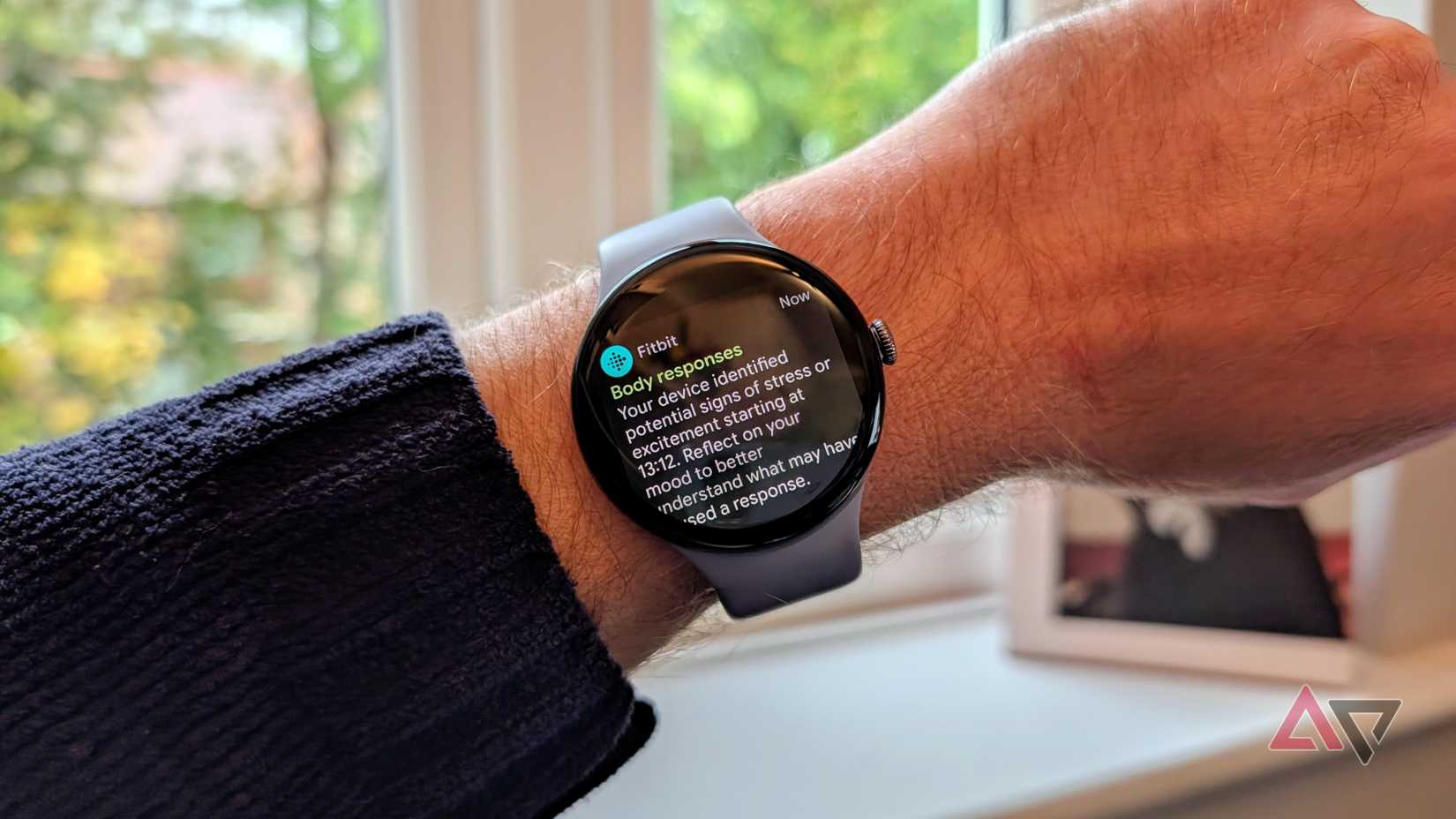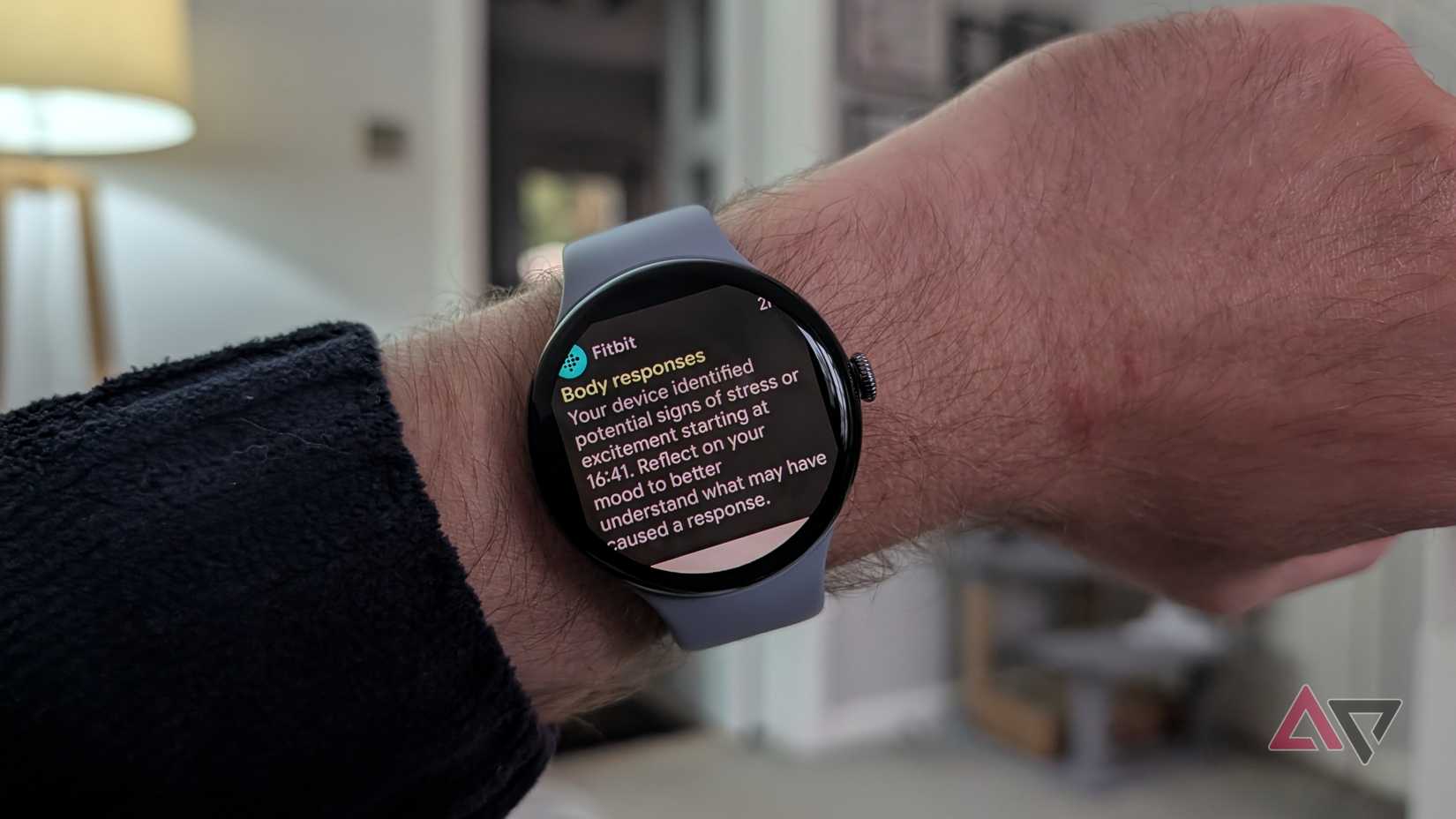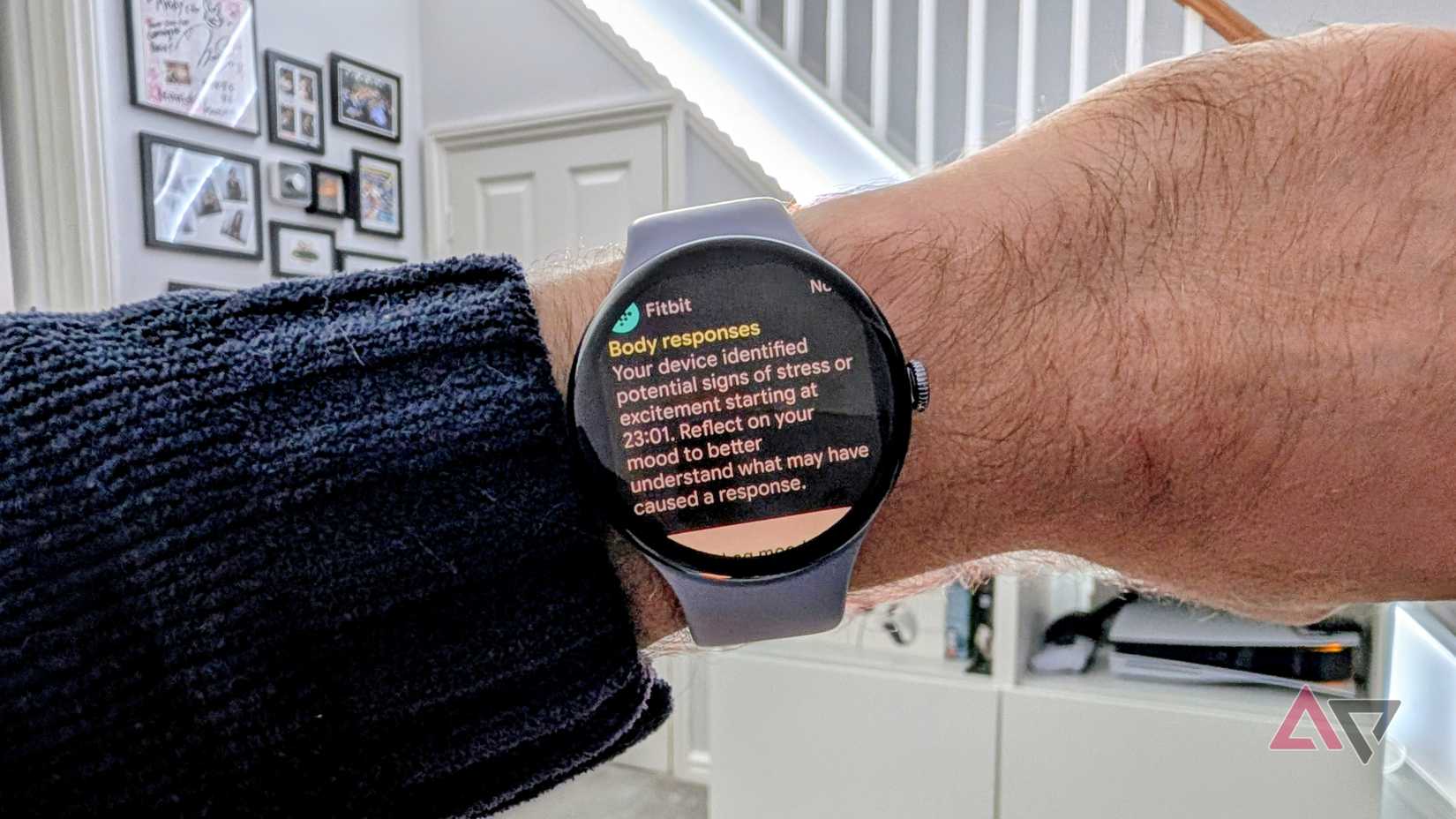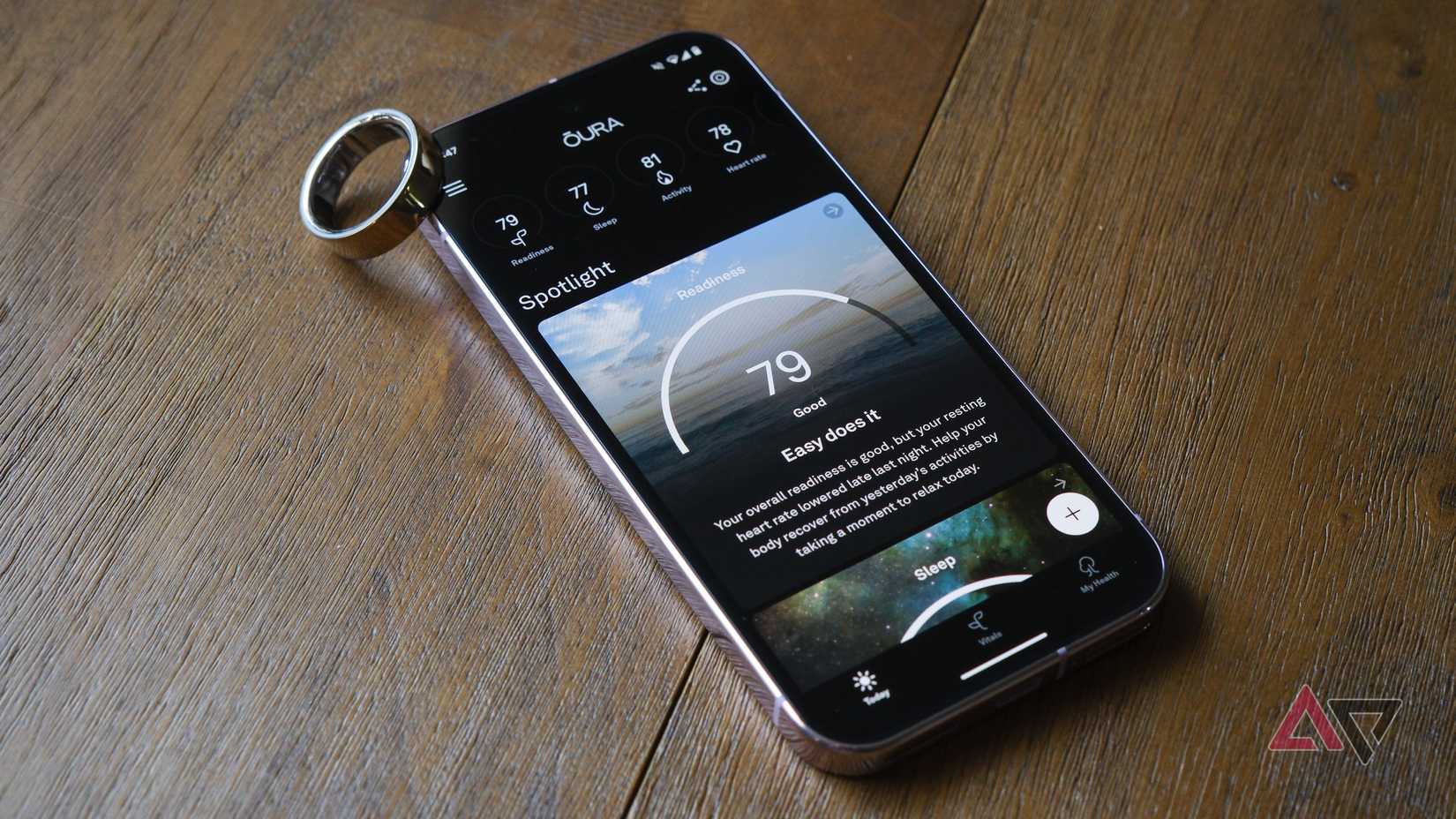My Pixel Watch 4 is very keen to let me know when I’m stressed or excited, to the point where it’ll tell me multiple times a day.
Nothing wrong with that, you may think. I agree, except most of the time, I’m neither stressed nor excited when I get the alert.
This is a problem because when notifications don’t provide any value, we turn them off. When the data from a health and lifestyle tracking app doesn’t align with how we feel, we don’t trust it.
Then, at which point does the device and app stop being something we want to use entirely?
Stressed and excited
Or maybe not

I began to notice the Fitbit app sending its Body Response notifications almost immediately after I started wearing the Pixel Watch 4.
Here’s what the notifications say:
Your device identified potential signs of stress or excitement starting at [a time]. Reflect on your mood to better understand what may have caused a response.
Under the alert is the option to log your mood, start a breathing exercise, pause the notifications, or learn more.
If you decide to log your mood, it opens the Fitbit app on your watch and presents you with eight mood options, such as happy, sad, worried, or frustrated.
How does it know if you’re stressed or excited?
According to the Body Response guide in the Fitbit app, the feature uses heart rate, skin temperature, and micro-sweat levels, and also states that things like caffeine, alcohol, and illness can affect its results.
Obsessed with stress
Even if I’m not stressed
Whatever the Pixel Watch 4 and Fitbit are measuring, the results are all over the place, at least during the week I’ve been wearing the smartwatch, and more often than not, the alerts did not match with my mood at all.
The first few times it told me that my body was either stressed or excited, I was working at my desk. I wasn’t stressed or excited, and the only option in the mood logging list that fitted was “Calm.” So far, not very insightful.
The odd timing continued with more alerts, but I stayed with it until times got more difficult.
What about times when I was stressed? On an afternoon where I dealt with a range of frustrating phone calls as I tried to fix a problem on a time limit, the Pixel Watch 4 and Fitbit stayed entirely silent.
If someone had asked me how I felt after the fourth phone call that got me nowhere, I would have said stressed and frustrated. What a shame the Fitbit app didn’t ask.
The final straw
I can’t even be lazy in peace

The alerts were quite annoying, but I persevered. I can’t review the Pixel Watch 4 without using its features.
Then, on Sunday night, the Pixel Watch and Fitbit app became quite concerned about my stress and excitement levels.
Over the course of Sunday evening, I got at least four alerts from Fitbit’s Body Response feature telling me I was stressed or excited.
Each alert came while I was relaxing on the couch, and I was neither stressed nor excited, ill, or drunk. Instead, I was being supremely lazy.

I was being lazy because for the last day-and-a-half I’d been moving furniture, rectifying problems, and organizing things for an upcoming trip.
My body was under stress during a lot of this, so how many alerts do you think Body Response showed me over those 36 hours? None.
My Oura Ring 4 also tracks stress, and taking a look at its data showed one period of stress on Sunday, at a completely different time than when the Fitbit app recorded one.
When Body Response sent an alert, the Oura Ring showed a period of relaxation.
These are not medical devices, but the disparity shows measuring stress with a wearable may be a dark art neither has mastered.
This isn’t helpful
The data doesn’t inspire
If Body Response had sent alerts when I was stressed or excited, there’s a chance I would have forgiven its bizarre series of alerts when I was doing absolutely nothing.
Even then, would I have welcomed its interruptions? Probably not.
An alert from an app that thinks I’m stressed when I’m actually stressed sounds like something I wouldn’t want to see either. But I’d possibly be prepared to forgive its intrusions if the data were valuable.
In the Fitbit app, you can see a log of Body Response alerts (six on Sunday, for example), along with any mood you added.
Interestingly, the app says that when you log your mood, it only helps build personal awareness and doesn’t state if it will help influence future results.
Stress Management, a related feature, breaks down physical signs of stress into three categories and adds a daily score.
Again, this appears to be about creating awareness, where you can see if a low score (which equals bad) matches with patterns in activity or sleep.
The Body Response feature appears to be a standard one, but the Stress Management score is part of the Fitbit Premium subscription, which costs $10 per month.
Little incentive to keep the alerts
The Oura Ring 4 does it better

The repeated Body Response alerts made me look more deeply into the data in the Fitbit app to see whether I cared about them or could see any benefit. Sadly, at this stage, I couldn’t.
I certainly didn’t find any reason to keep the Body Response notifications active, and they can be turned off under your account screen, then in the Settings and Stress and Management sections.
Does this mean stress data isn’t worth seeing at all?
I find the Oura Ring 4’s historical and long-term insights into stress interesting, especially how it relates to Resilience, which is its measure of how your body is primed for recovery. Fitbit does not provide anything like this.
Midway through writing about this, I received another Body Response alert telling me that it had noticed I was either stressed or excited. What was I doing at the time? Making lunch, which, I can assure you, was neither stressful nor exciting.
Broken and useless
Reduce stress, turn off alerts
None of the Body Response notifications from the Fitbit app to the Pixel Watch 4 have provided any value, and it seems that even if I diligently log my mood each time, it isn’t likely to have any impact on the data.
Even in the app, the data is just some numbers, while the Oura Ring 4’s app at least puts its stress data to some use in graphs related to your overall ongoing health.
If the thought of pointless notifications stresses you out, and you’re about to put on a Pixel Watch 4, think about turning off the Body Response messages. I have, and I’m pretty sure it has lowered my stress levels already.
![]()
- CPU
-
Snapdragon W5 Gen 2
- RAM
-
2GB
- Storage
-
32GB
- Battery
-
455 mAh
- Cellular connectivity
-
4G LTE
- Bluetooth
-
V6